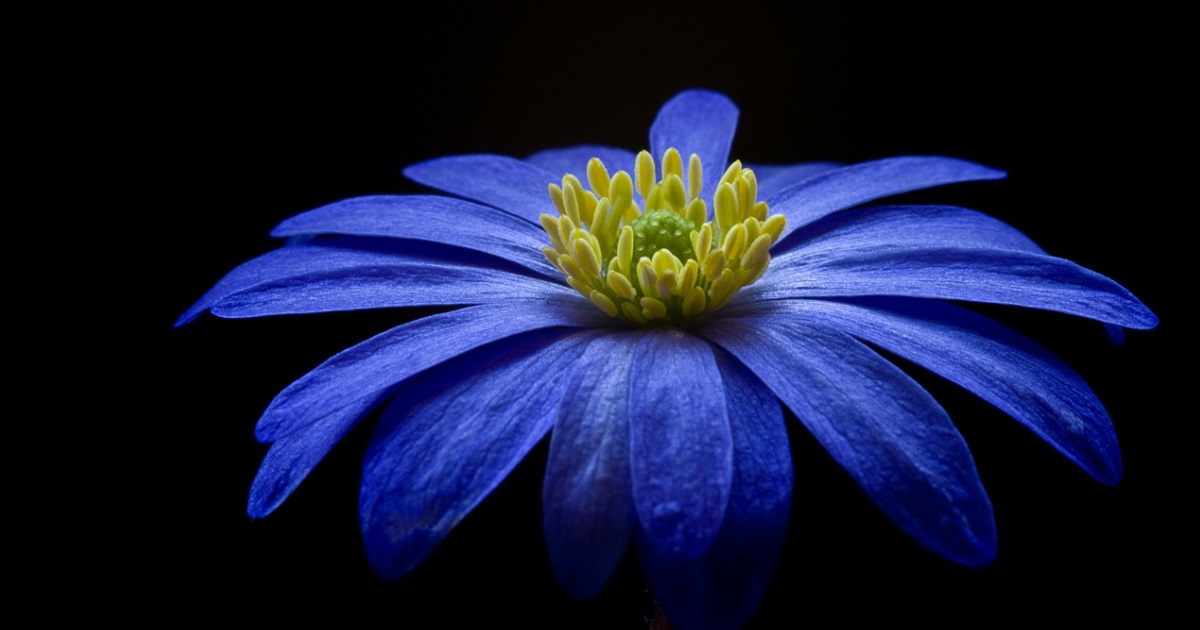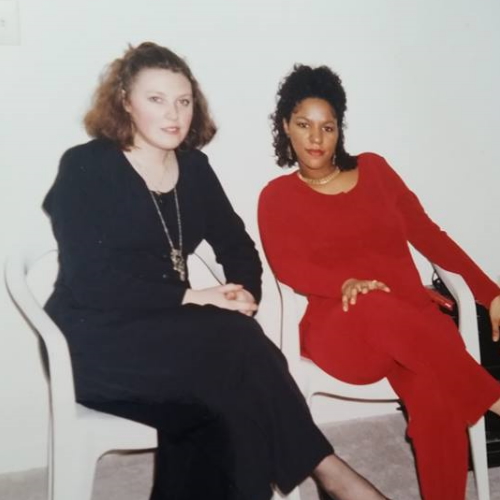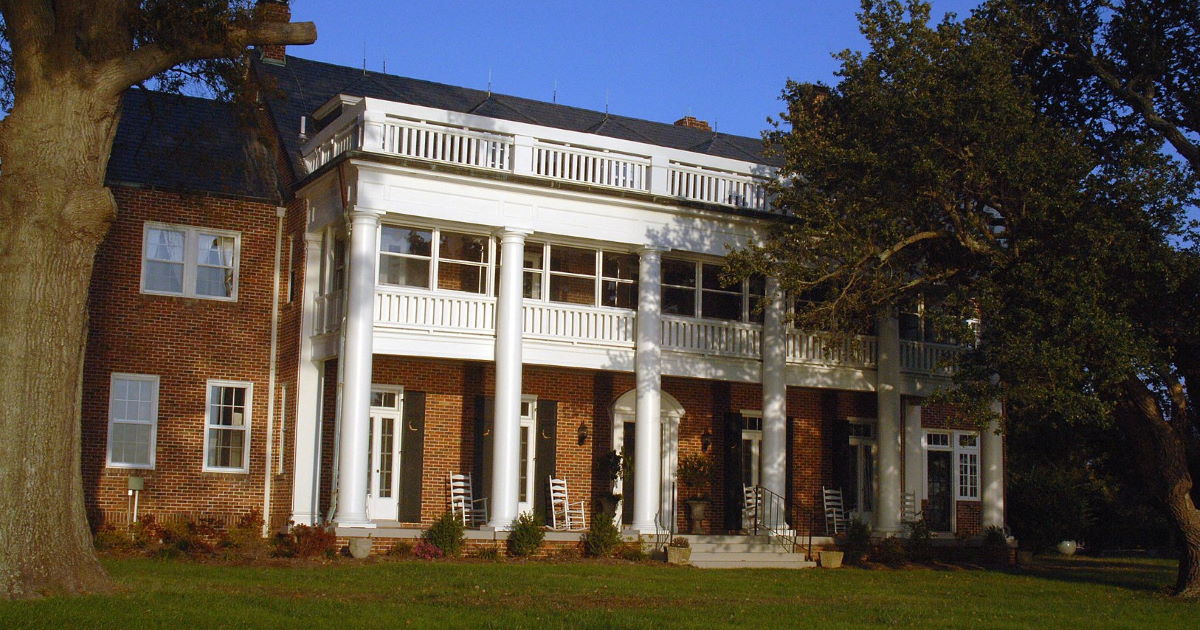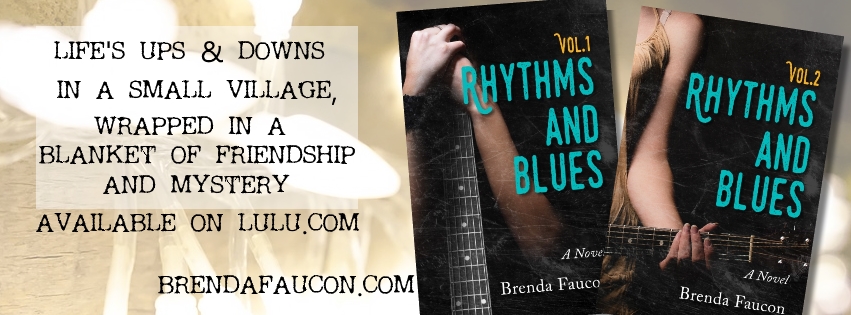
Choosing a Kiss. A memoir of racism in the life of a naïve immigrant
Since the murder of George Floyd, I have been painfully aware that blacking out my profile against racism is easy. Finding words to help in the fight, not so much. But give me a minute, I have a life-story to tell.
I remember well the first Algerian family that moved into my grandmother's neighborhood in the city. I must have been around 10 or 11 and could not understand why everybody called them "Turks". They were not from Turkey. They were Algerian. The blanket term to cover all Middle Eastern and African families that moved in after the EU opened its borders was my earliest confrontation with racism.
Born in ’69, I grew up quite sheltered in the Flanders countryside. I was a shy kid, but also curious. While the people … ‘some people’ … around me grumbled and spat about the influx of migrants in our little country, I was wide-eyed with curiosity. Who were they? What was their country like? What did they eat? Why were they wearing headdress? And why did people insist on calling them Turks? Why were they shouting ‘zwartzak’ (black bag) or ‘makak’ (a species of monkey) after African people?
What was up with my fellow countrymen? My own family? Why were they not curious and welcoming? What were they afraid of? Personally, I was excited for diversity of culture in my young life.
The first American black man I ever met, whose hand I ever shook and whose cheek I ever kissed, was my neighbor when I lived in northern Germany. He was an Airforce guy from Texas. I was nineteen years old. Did I mention I grew up sheltered? I did not know it then, but the balloon was pricked, the wall was busted. Pat was the first of a great many African American friends I would count in my future.
Sometimes just being yourself is the radical act. When you occupy space in systems that weren't built for you, your authenticity is your activism.
Expressions of racism and discrimination are embarrassing and uncomfortable. It does not sit well in my heart. I am incapable of thinking that way. Because… I love souls, and cultures, and stories. The very essence of people. But despite the obvious issues of xenophobia in my own country, also directed at my Brazilian-American ex-husband being very hurtful and still rampant today even in my own extended family, I had yet to learn that there is racism, and there is racism. I did not understand.
Not until I moved to the United States.
In Lafayette, Indiana, I met the most wonderful African American couple, Christopher and Tamika. We were very close very quickly. In life, you meet people that you just click with, you fit together like hot water and instant soup. Right? It was not just them though, but their family as well. We were souls. We were kindred spirits.
Indiana seems a long time ago. It seems a lifetime away from rural Vendée (France), where I live now. Which is a bubble.
The events that happen in a day or in a moment of your life can have such a lasting impact. Back in Indiana, during a solo night shift at the petrol station where I worked as a cashier, the Ku-Klux-Klan, walked into 'my' shop. The gas station was a busy place, right next to I-65, a cross-country route that connects the Great Lakes with the Gulf of Mexico. But not that day. The group had had a rally in town and the streets were generally quiet. People stayed home in case of unrest.
When the door opened and I looked up from my work… there they were, a group of twenty or thirty KKK, dressed in sheets, some with pointy hoods others without.
You could have knocked my little naïve self- down with a feather. Being confronted with my own ideologies sucked the breath clean from my lungs. That night I learned there is a fine line between being mortified and being terrified. My wonderful friends were just a couple of miles away safely tucked up in bed. And with every tally I made on the cash register, I felt less worthy of their friendship. But it was also a pivot moment.

Tamika & I, how young we were!
Tamika was pregnant with her first child at the time. I was over the moon when they asked me to be the baby's godmother. When Jade was a few months old, maybe 6 months, I do not remember the circumstances exactly, but somehow Chris and I, and the baby, were driving somewhere – and, long before GPS or cell phones, we got lost in an area called "White County". Now, you must realize that this area in Indiana was born in history. This was notorious Ku-Klux-Klan territory. We realized it moments after we had stopped in a random subdivision to figure out how to get home on a map.
Following Chris’ uh-oh, we looked around. More and more white faces appeared in windows, some with a phone pressed against their ears. Staring. It was not only the map that showed us exactly where we were. Suddenly you become very aware. We were not people here. Not friends. We were a black man and a white woman. With a baby in the car. And all the prickles in your conscious self… start firing at the same time.
What happened in the next moment was born from the depths of the soul and friendship. And possibly from the need to buck like a stallion against history itself. I will never forget it. We looked at the faces, we turned to each other... and we kissed demurely on the lips, arms wrapped around each other.
It is, to this day, the most impassioned kiss of my life. Not because of the kiss itself, I mean, it wasn't that kind of kiss and kissing Chris was like kissing my brother... but honestly... you have to believe in something fiercely to create a spur-of-the-moment protest right in the heart of centuries-long ingrained white supremacy. I have flipped my middle finger in the face of injustice a-plenty in my life, but none as empowering and beautiful as that.
Some months after, having witnessed the heroic birth of Chris and Tamika’s son Joshua, I packed up to move to Memphis, Tennessee. An absolute dream come true. I love the Blues, a love I hope to have transmitted to my goddaughter, tucking her in to the sound of the music whenever she stayed with me. Reading the book "Blues People" had given me great insight into the history of the music. I could not wait to live near Beale Street where I could drink from the Holy Grail, 24/7. I was moving to the ‘Deep South’, ready to broaden my horizons and experiences even more.
Tamika had a heart-to-heart with me then. I was her dear friend and the woman to whom she entrusted her children, but I think she also saw me as the naive foreign girl who was not truly familiar with the extent of racism in the US and who would probably never 'truly' understand it.
She said: "It's different in the South, Bren. Racism is bad enough here but, in the South, it lives, and it goes both ways, so it will be directed at you too."
"No matter how big a nation is, it is no stronger than it's weakest people, and as long as you keep a person down, some part of you has to be down there to hold him down, so it means you may not soar as you might otherwise."
“Silence, I discover,
is something you can actually hear.”
For a time, I was upset by it. Any black person that ever behaved like that was represented in that one cashier. Why would you be racist against me, I asked her many times in my deepest thoughts. Me?! How can I be held responsible?
I was an immigrant after all.
Until deeper research into my one forefather mentioned in the history books revealed that he was one of the first pioneers to raze the jungle in Congo, under Leopold II. It is difficult to confirm this, of course, but my last name is distinct. So, it is not impossible that one of my forefathers had a hand in the history of racism and slavery. That is me cringing and red-cheeked then! I’d been learning humbly, and humbly realized there was so much more to learn. That hasn’t changed, even today, even while writing this!
Murder did touch my life in Memphis. A colleague of mine was kidnapped, beaten, strangled, and dumped in a field just over the border in Mississippi. About two years ago our mutual boss was shot in the back walking home in downtown Memphis, right near my beloved Beale Street. Both perpetrators were black. In Stacy’s case, it was a hate crime. She was gay. In Phil’s case, it was a gang initiation.
Mr. Floyd, the African American man at the root of current #blacklivesmatter protests, was no angel either. He had a criminal record and did some horrible things. There has been much looting and destruction of property too, which I will not condone. The speech given by Atlanta Mayor Keisha Lance Bottoms was superb and spot on in my opinion. This type of behavior does not honor the legacy of the greatest protester that has ever lived, Martin Luther King Jr.
About ten years ago I had the honor of sitting beneath the tree where MLK wrote his “I have a Dream” speech. Talk about goosebumps! As a person who likes to write outdoors as well, I realized that spot on the York River at Holly Knoll (the Moton Center) is completely reflected in the grace and serenity of the speech.
I am seeing a lot of people on social media and the people I live among turn against the protests, or mock them, and this really pains me very much. They want to paint themselves as not racist but really, they are reflecting and re-posting the narrative they want to hear.
George Floyd was not the first black person to be a victim of random police brutality. Ahmaud Arbery simply went for a jog. Christian Cooper went birding. Kevin Davis tried to defend his girlfriend from an armed intruder. Sandra Bland committed a traffic violation. The list goes on, and on. And on.

The Moton Center at Holly Knoll with Martin Luther King Jr's tree (r)
So many events that, just like all the mass shootings in the U.S., the incidents became marginalized. When this is your evening news day after day, it makes you numb.
But this time, with the murder of Mr. Floyd, the world did not shut off the TV as just ‘more bad news’. Because, at no point in 8m40s did that sad excuse for a cop fail to understand that he was on camera, that he was committing murder of someone he thought of as ‘less than himself’, a black man he felt entitled to bully into submission. Most likely he had gotten away with it before. He was acting with impunity, empowered by the color of his skin.
Throughout history, racism in the United States has grown to the size of an anaconda strangling society slowly over time. In a very disturbing eight-minutes-and-forty-seconds, the world stared into the mirror of a system that is horribly broken far beyond U.S. borders.
Anno 2020, finally, it was clear that racist, autocratically charged individuals being part of a police force meant to protect and serve the public is a part of the problem.
Were I in the U.S. now I'd probably be on the streets of Atlanta (it's an awesome city near where I lived later on) standing shoulder to shoulder in solidarity. Instead I raise my fist from rural France, using my pen in protest against a broken system. I do not want a world where there is no racial equality, where we have no equal opportunities and where public lynching is marginalized. I don’t want a world in which my black family and friends have a less than 1% chance to be given the benefit of the doubt. The very idea that they should be afraid because of the color of their skin terrifies me infinitely, infinitely, infinitely more than my little midnight encounter with the KKK possibly could.
I understand racism and discrimination come in many forms. It is not only about color. At times it even stands loose from history. We live in a society where nobody can tell you what to do, but where the power for change lies within us all.
When children are born, they are not born racist. Think about that for eight minutes and forty seconds.
Racism is rooted in ignorance through generations.
Ignorance is a choice.
Ignorance and racism are a mold that can be broken.
Embrace your inner work.
Break the mold.
Move away from the narratives that feed what you want to hear.
Choose each other.
Choose a kiss.
And vote, because the damn system needs reform-worldwide!
Thank you for reading
Brenda Faucon
Of course everybody's life matters, but this is a fight against police brutality based on color of skin. It is a fight for equality and for equal opportunity regardless of skin tone. So, it's not about #alllivesmatter. If that is insulting, you're on the wrong side of history. Good news though... it's not too late to work on it!

“No one is born hating another person because of the color of his skin or his background or his religion. People must learn to hate and if they can learn to hate, they can be taught to love, for love comes more naturally to the human heart than its opposite.”
Share this Post

